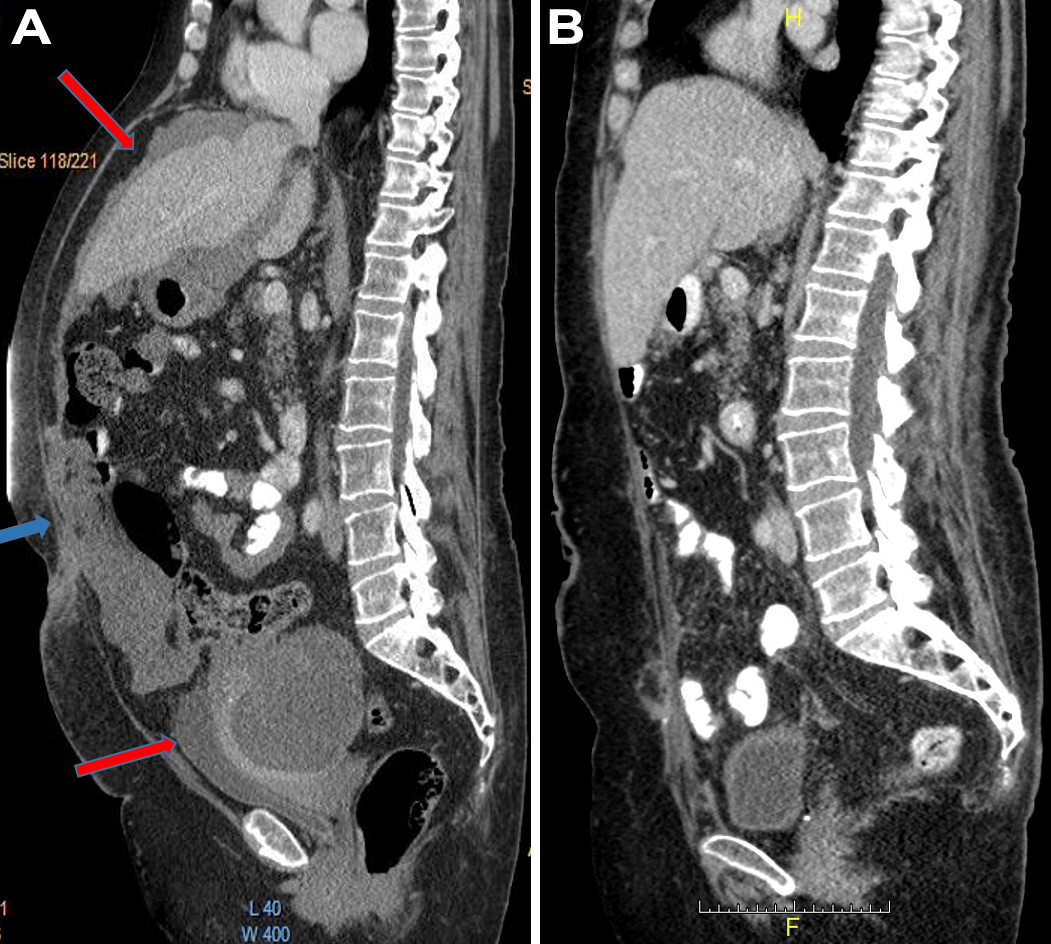Cytoreductive Surgery with HIPEC Offers Hope When Hope Is Needed Most in the Fight against Cancer
Stony Brook University Hospital is the only hospital on Long Island to provide cytoreductive surgery (CRS) and HIPEC — heated intra-peritoneal chemotherapy — for the treatment of advanced abdominal cancers.
The CRS-HIPEC procedure is an aggressive combination of surgery and chemotherapy to eradicate abdominal tumors. The goal of CRS and HIPEC is to perform radical surgery to remove all disease, but also to enable return to regular daily activities.
In select patients, HIPEC may increase survival time significantly. It offers patients hope when hope is needed most. It's a special form of surgery and intraoperative chemotherapy first performed in 1979, and further developed since then.
With the recruitment in 2015 of surgical oncologist Joseph Kim, MD, patients are coming to Stony Brook from afar for CRS-HIPEC treatment by him. Many of these patients were told by physicians elsewhere that nothing more could be done for them.
Here, we share one of the stories and testimonials of patients who have come to Stony Brook Cancer Center for this leading-edge care provided by Dr. Kim. It's a story of hope against all odds.

| Mrs. Rosa M back in Spain, after surgery with HIPEC provided by Dr. Joseph Kim. |
Mrs. Rosa M is a 71-year-old Spanish woman who had a mucinous appendix tumor, a rare and poorly understood disease. Her initial symptoms included abdominal fullness and pain. She sought treatment with her physicians in Spain who diagnosed her with cancer that spread throughout the abdominal cavity.
The doctors there were uncertain of the cancer's exact origin, but they felt that she was inoperable and placed her on chemotherapy to relieve her symptoms.
Mrs. M's children brought her to the United States where they sought second opinions. They were told that chemotherapy was the only treatment option at one cancer center, and at another center, they were told that surgery would likely fail to remove all the disease.
She came to Stony Brook where extensive cytoreduction with HIPEC was successfully performed to remove all the disease.
Although the operation was complex and the hospitalization long, Mrs. M and her husband are now enjoying her disease-free days back in Spain. Her only complaint is the nerve damage from the unnecessary chemotherapy that she received. We have asked her a few questions about her experience with this complicated disease.
"My doctors in Spain told me there was no treatment for my cancer."

| CT scan images show the changes in abdominal distension before (A) and after (B) cytoreduction and HIPEC. On the left (A), the patient has the classic "jelly belly" appearance with protrusion of the abdomen from massive accumulation of mucin. There is mucin around the liver and in the pelvis (red arrows). There is a large omental cake at the anterior abdominal wall (blue arrow). On the right (B), several liters of mucin were removed during surgery leading to a flat abdominal wall. The mucin is no longer present anywhere in the abdomen, and the omental cake has been removed. (Click on image to enlarge.) |
Q: What did your original physicians tell you about your disease and its likely course?
A: I was diagnosed in November 2015 with peritoneal carcinomatosis. I was told it probably originated in an ovary or in my small bowel. It was deemed untreatable, and I was given six to nine months to live. I was placed on palliative chemotherapy (Folfox 6).
Q: Were you ever told that there was no more possible treatment for your disease?
A: Yes, my doctors in Spain told me there was no treatment for my cancer. I was later told the same in consultations at both Dana Farber in Boston (where the doctor told me straight out "this is a life-ending event") and at Memorial Sloan Kettering Cancer Center in New York, where they originally concurred with my Spanish doctors in continuing with chemotherapy adding Avastin.
Later, a surgeon at Sloan suggested a laparoscopy to do exploratory surgery to determine if complete cytoreduction were possible, and if not, to do partial surgery and follow with chemo.
Q: How did you learn about cytoreduction surgery and HIPEC at Stony Brook?
A: I learned about cytoreduction with HIPEC by reading about treatment options for peritoneal carcinomatosis, and came across Dr. Paul Sugarbaker's work in the area. I only learned of Dr. Joseph Kim and Stony Brook Medicine the week before my consultation in October 2016. To this day, I can't really explain how, as he had never before come up in my many Internet searches for treatment. Thank God, he finally did!
Q: What is your current level of activity? Is it back to baseline or close to getting there?
A: My level of activity is at, or slightly better than, where it was just before surgery, though I'm still suffering the effects and damage of the neuropathy caused by chemotherapy. But I'm regaining strength on a daily basis.
| Stony Brook gastrointestinal surgical oncologist Joseph Kim, MD, is an international CRS-HIPEC leader with vast experience in the procedure and major scholarly publications about it, including the book chapter "Cytoreductive Surgery and Hyperthermic Intraperitoneal Chemotherapy for Mucinous Tumors of the Gastrointestinal Tract" (2016) published in Gastrointestinal Cancers: Prevention, Detection and Treatment (Nova Science); the book chapter "Diseases of the Peritoneum and Retroperitoneum" (2014) published in ACS Surgery: Principles and Practice (Decker), the only textbook bearing the imprimatur of the American College of Surgeons; the peer-reviewed article "Data from ACS NSQIP on CRS-HIPEC" (2014) published in JAMA Surgery by the American Medical Association; and the peer-reviewed article "Reduced Morbidity Following Cytoreductive Surgery and Intraperitoneal Hyperthermic Chemoperfusion" (2004) published in Annals of Surgical Oncology by the Society of Surgical Oncology. Dr. Kim directs the CRS-HIPEC program at Stony Brook Medicine. |
Read more stories and testimonials of patients treated with cytoreductive surgery and HIPEC by Dr. Joseph Kim. For consultations/appointments with him, please call 631-444-8086.
